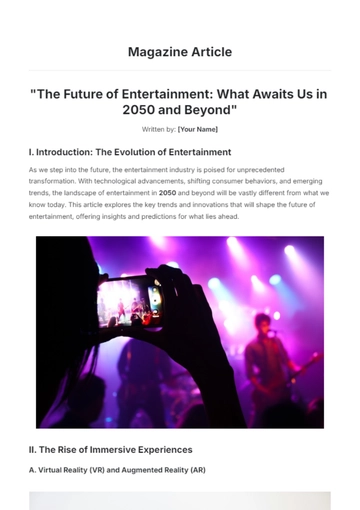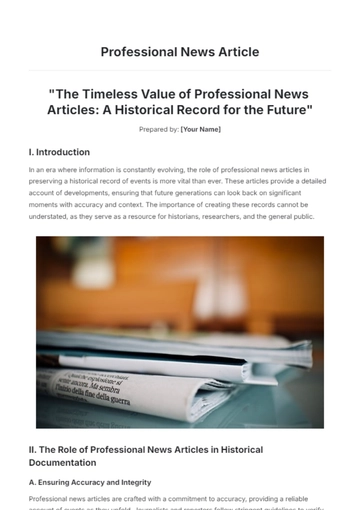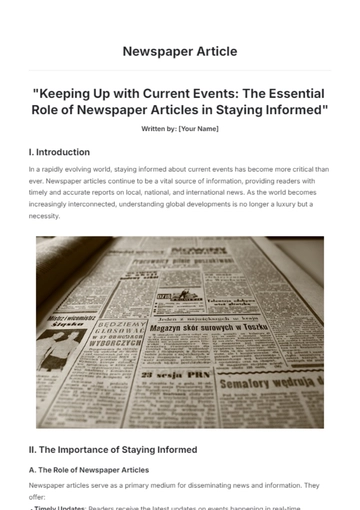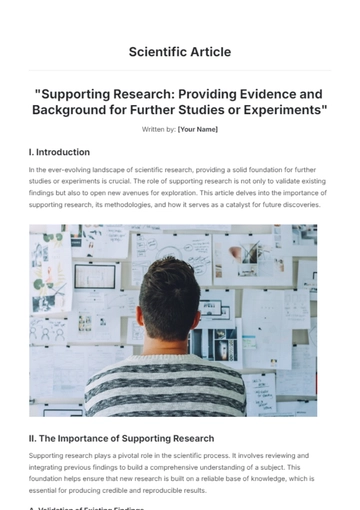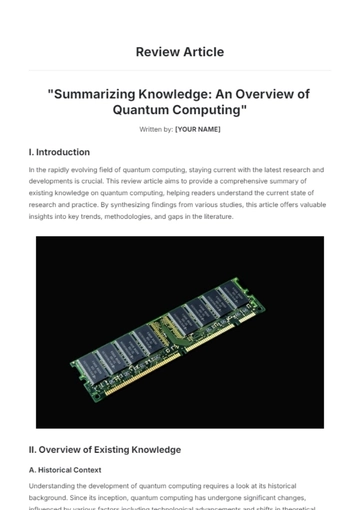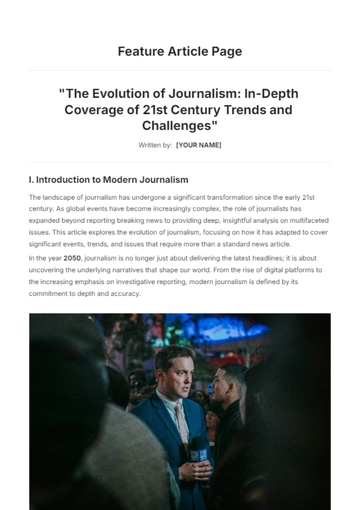Free Controversial Article
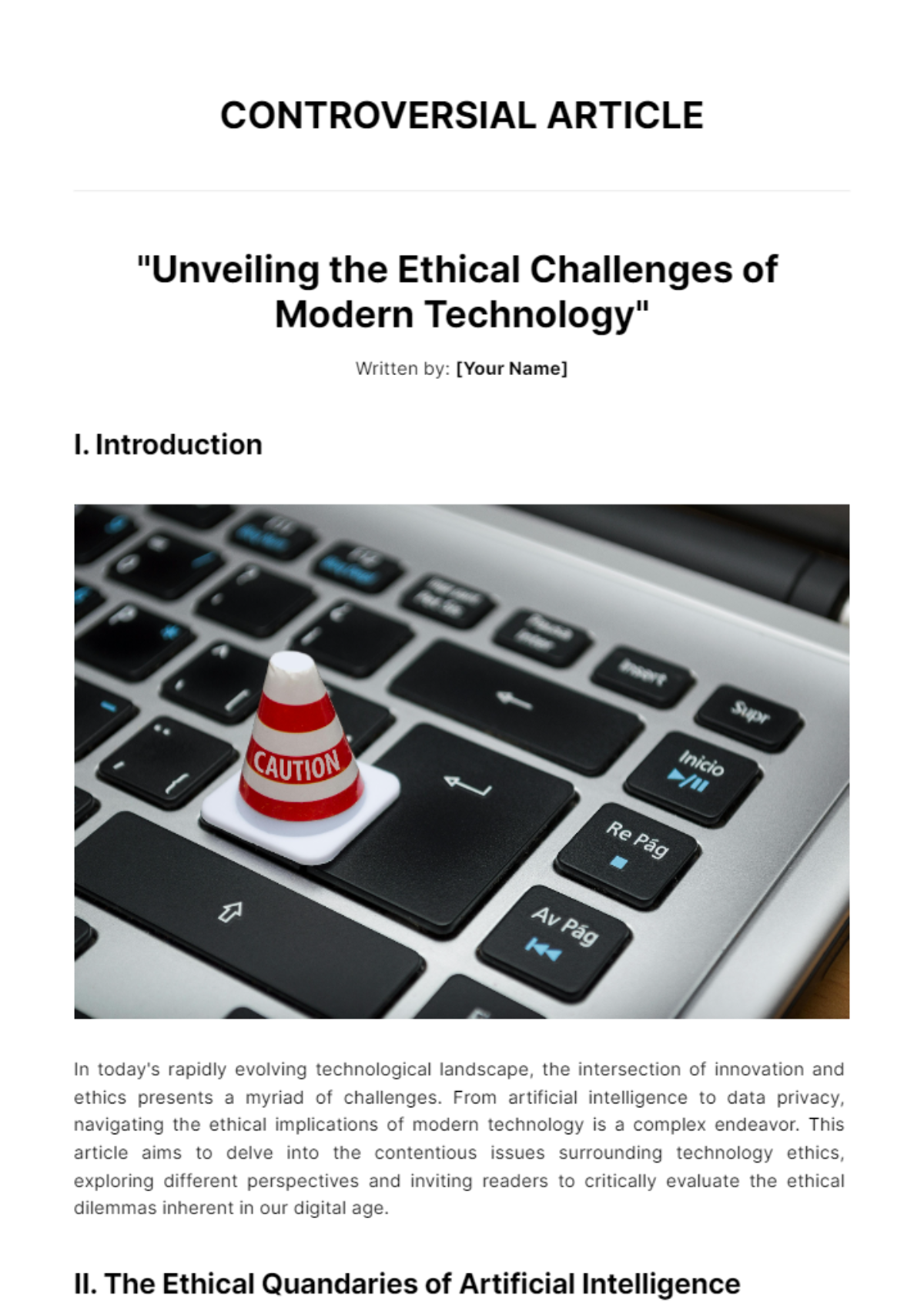
"Unveiling the Ethical Challenges of Modern Technology"
Written by: [Your Name]
I. Introduction

In today's rapidly evolving technological landscape, the intersection of innovation and ethics presents a myriad of challenges. From artificial intelligence to data privacy, navigating the ethical implications of modern technology is a complex endeavor. This article aims to delve into the contentious issues surrounding technology ethics, exploring different perspectives and inviting readers to critically evaluate the ethical dilemmas inherent in our digital age.
II. The Ethical Quandaries of Artificial Intelligence
Artificial intelligence (AI) has transformed our lives in countless ways, but it also raises significant ethical concerns:
AI's increasing autonomy and decision-making capabilities challenge traditional notions of accountability and control. As AI systems become more sophisticated, questions arise about who bears responsibility for their actions and how to ensure transparency and oversight.
Privacy issues loom large as AI algorithms analyze vast amounts of personal data. The ethical implications of data collection, usage, and potential misuse underscore the need for robust privacy protections and regulatory frameworks.
According to a recent survey, 65% of respondents express concern about the lack of transparency in AI algorithms and decision-making processes.
III. Navigating the Ethical Landscape of Data Privacy

The commodification of personal data has become a central ethical dilemma in the digital age:
Corporate practices of data collection and surveillance raise concerns about individual privacy rights and autonomy. Striking a balance between convenience and privacy is paramount as companies seek to leverage personal data for profit.
Legal frameworks often lag behind technological advancements, leaving individuals vulnerable to exploitation and abuse. Addressing gaps in privacy laws and regulations is crucial to safeguarding individuals' rights in an increasingly data-driven world.
IV. The Societal Implications of Automation

The rise of automation promises increased efficiency and productivity, but it also poses significant ethical challenges:
Job displacement and economic inequality are major concerns as automation reshapes the workforce. Ensuring equitable access to opportunities and resources is essential to mitigate the negative impacts of technological disruption.
The ethical implications of automation extend beyond economic considerations to societal values and norms. As we embrace automation, we must grapple with questions of fairness, justice, and the distribution of power in our increasingly automated world.
V. Conclusion
As we navigate the ethical complexities of modern technology, it is imperative to approach these issues with careful consideration and critical reflection. By engaging in open dialogue, fostering transparency, and advocating for ethical guidelines and regulations, we can work towards harnessing the benefits of technology while mitigating its potential harms. Ultimately, the path forward requires a collective commitment to ethical principles and a recognition of the profound impact of technology on our lives and society.
- 100% Customizable, free editor
- Access 1 Million+ Templates, photo’s & graphics
- Download or share as a template
- Click and replace photos, graphics, text, backgrounds
- Resize, crop, AI write & more
- Access advanced editor
Discover the power of controversy with the Controversial Article Template from Template.net. Crafted by experts, this editable and customizable template allows you to explore contentious topics with ease. Editable in our Ai Editor Tool, it's your key to sparking thoughtful discussions and engaging readers like never before.









